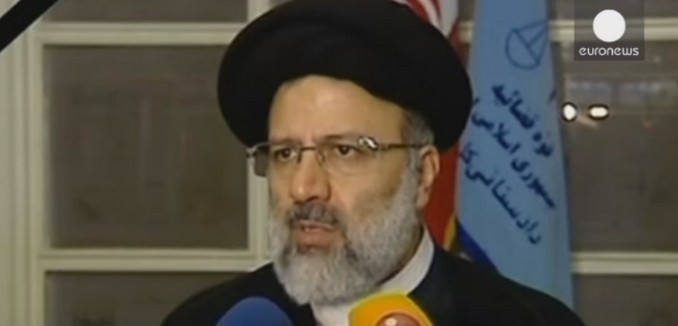One of the likeliest successors to Iranian Supreme Leader Ayatollah Ali Khamenei has a “a contempt for the West” and is committed to “the theocracy’s mission of repression,” Council on Foreign Relations senior fellow Ray Takeyh wrote in The Washington Post on Monday.
Ibrahim Raisi, a former prosecutor general, is being positioned to succeed Khamenei, Takeyh wrote. Raisi has all the qualities that Khamenei and the Islamic Revolutionary Guard Corps (IRGC), the Ayatollah’s extraterritorial militia, are seeking in a successor: someone who shares “their penchant for conspiracy theories, demonstrate[s] a contempt for the West and [is] prepared to shed blood on behalf of the regime. The next supreme leader has to not only believe in the theocracy’s mission of repression but also have been an integral part of that machinery. No one in the Islamic Republic embodies these attributes more than Raisi.” Raisi demonstrated the necessary qualities in the late 1980s, when he presided over thousands of executions of political prisoners.
In April of this year, Khamenei appointed Raisi to head the Astan Quds Razavi, one of Iran’s largest charities. The charity manages manages the Imam Reza Shrine in Mashhad, Raizi’s and Khamenei’s hometown, which sees over a million visitors a year. The charity, which Takeyh estimates to be worth more than $15 billion, also includes real estate and other enterprises. Controlling the charity increases Raisi’s prominence and gives him the resources to build a network of supporters. By naming Raisi to this position, Takeyh stated, Khamenei “has opened the gates of the Islamic Republic’s murky financial universe to Raisi.”
Khamenei and the IRGC is not just looking for a successor who will perpetuate the regime but one who will preserve its revolutionary values too. The anti-regime protests of 2009 are still viewed as a “watershed event” in the regime’s history and since then Takeyh wrote, “under Khamenei’s watchful eye, Iran is being transformed into a police state.” Thus for continuity the Khamenei’s successor must come from “the heart of Iran’s repressive organs.”
Raisi’s mass executions were condemned at the time by Hossein Ali Montazeri, a prominent cleric who had once widely been considered to be the successor to Ayatollah Ruhollah Khomeini, the Islamic Republic’s first Supreme Leader. Recently discovered recordings showed Montazeri warning that carrying out the killings would be “the biggest crime in the Islamic Republic, for which the history will condemn us.” Montazeri fell out of favor due to his protests against the regime’s brutality and he was eventually placed under house arrest until his death in 2009.
Mostafa Pour-Mohammadi, who was appointed by Rouhani as justice minister, was also involved in the mass executions, earning him the nickname “Minister of Murder.” Under Pour-Mohammadi, executions in Iran have increased in each of the first three years of Rouhani’s tenure, reaching a total of 966 last year, the highest total in a decade.
[Photo: Channel Two / YouTube ]




